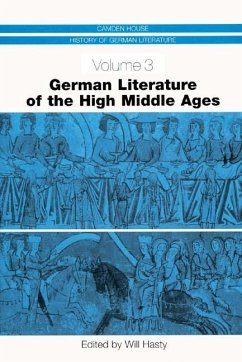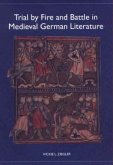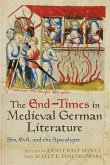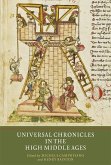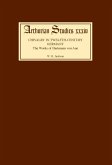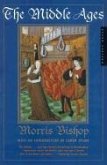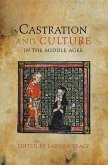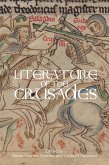The High Middle Ages, and particularly the period from 1180 to 1230, saw the beginnings of a vibrant literary culture in the German vernacular. While significant literary achievements in German had already been made in earlier centuries, they were a somewhat precarious vernacular extension of Christian Latin culture. But the vernacular literary culture of the High Middle Ages was an integral part of broader cultural developments in which the unquestioned validity of traditional authoritative models began to lose its hold. A secular culture began to emerge in which positive value began to be attached to the -- however transitory -- allegiances, pleasures, and loves of life. In new essays dealing with the most significant literary genres (the heroic epics, the romances, the love lyrics, and political poetry) and with broader political, social, and cultural issues (control of aggression, territorialization), this third volume of the Camden House History of German Literature demonstrates how the emergence of a vernacular literary culture in Germany was an important part of a broader cultural transformation in which medieval people began to redefine themselves, their relationships to one another, and the position of humanity in the scheme of things.Contributors: Albrecht Classen, Nicola McLelland, Rodney Fisher, Neil Thomas, Marion Gibbs and Sidney Johnson, R]diger Krohn, Will Hasty, Nigel Harris, Susann Samples, Sara Poor, Michael Resler, R]diger Brandt, Elizabeth A. Andersen, Ulrich M]ller and Franz Viktor Spechtler, Ruth Weichselbaumer, W. H. Jackson, Charles Bowlus.Will Hasty is Professor of German Studies and co-founder and co-director of the Center for Medieval and Early Modern Studiesat the University of Florida.
Hinweis: Dieser Artikel kann nur an eine deutsche Lieferadresse ausgeliefert werden.
Hinweis: Dieser Artikel kann nur an eine deutsche Lieferadresse ausgeliefert werden.

